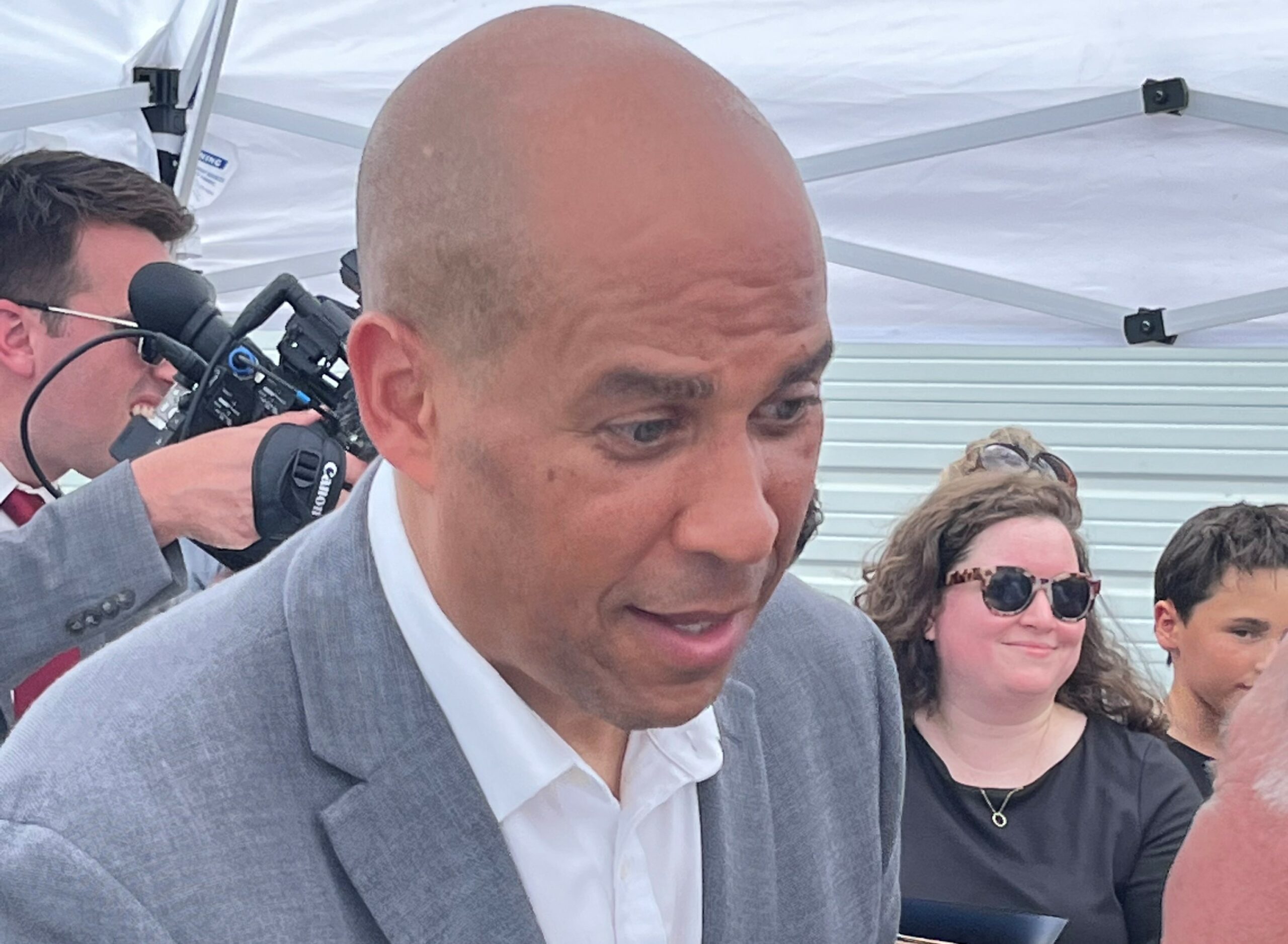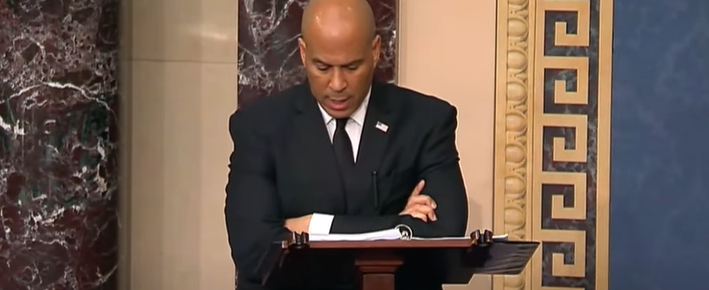
This week, U.S. Senators Jeanne Shaheen (D-NH), Ranking Member of the U.S. Senate Foreign Relations Committee, Brian Schatz (D-HI), Tim Kaine (D-VA) and Cory Booker (D-NJ), members of the U.S. Senate Foreign Relations Committee, sent a letter to President Donald Trump expressing deep concern about the proposed efforts to eliminate a number of entities established by Congress, including the Inter-American Foundation (IAF) and the United States African Development Foundation (USADF).
“These entities play a crucial role in promoting U.S. interests in Latin America and the Caribbean and across the African continent by supporting community-driven development, fostering economic growth, and strengthening democratic governance,” wrote the Senators. “Moreover, they are statutorily established entities supported by repeated bipartisan appropriations since 1969 (IAF) and 1980 (USADF) and their elimination cannot be effectuated by executive action alone.”
“Eliminating or effectively preventing the IAF or USADF from carrying out their missions would not only be illegal but would undermine U.S. leadership in the Western Hemisphere and across the African continent, creating a vacuum that adversarial powers would exploit to expand their influence, and undermine congressional intent,” they continued.
“We urge you to respect the statutes that govern the IAF and USADF,” they concluded. “If your administration believes changes to the IAF’s and USADF’s mission or funding levels are necessary, such proposals should be submitted to Congress for legislative consideration, as required by law.”
Full text of the letter is available HERE and provided below.
Dear Mr. President,
We write to express serious concerns with the proposed efforts to effectively eliminate a number of entities established by Congress, including the Inter-American Foundation (IAF) and the United States African Development Foundation (USADF) as outlined in your February 19, 2025, Executive Order, “Commencing the Reduction of the Federal Bureaucracy.”
These entities play a crucial role in promoting U.S. interests in Latin America and the Caribbean and across the African continent by supporting community-driven development, fostering economic growth, and strengthening democratic governance. Moreover, they are statutorily established entities supported by repeated bipartisan appropriations since 1969 (IAF) and 1980 (USADF) and their elimination cannot be effectuated by executive action alone.
Both statutes provide that they “shall have perpetual succession unless…dissolved by an Act of Congress.” This unambiguous language makes it clear that only an act of Congress—not an executive action—can lawfully dissolve or eliminate the IAF and USADF. Any attempt to unilaterally dismantle or impede these entities from being able to carry out their statutory mission through executive action would violate the law and exceed the constitutional limits of executive authority.
Furthermore, Congress prescribed clear statutory functions for the IAF and USADF that must continue as required by law. The IAF is tasked with cooperation with private, regional, and international organizations, strengthening U.S. ties with the Western Hemisphere, international development efforts, civil society inclusion, and democratic institutions. The USADF is similarly tasked to strengthen the bonds of friendship and understanding between the people of Africa and the United States; enlarging opportunities for community development; assisting effective and expanding participation of Africans in their development process; and encouraging the establishment and growth of development institutions that are indigenous to the continent. These functions are not discretionary but legally required by Congress and cannot be overridden by executive order.
Further, any effort to reduce the size or scope of the IAF and USADF through an executive order would violate appropriations law; Congress has repeatedly appropriated fund for these entities, including in the most recent appropriations bills. The Further Consolidated Appropriations Act, 2024 (P.L. 118-47) appropriated $47 million for the IAF and $45 million for USADF, to remain available for personnel and programs through fiscal year 2025, and such funding is carried forward under the Continuing Appropriations and Extensions Act, 2025 (P.L. 118-83). Congress provided these levels to ensure these agencies can meet their statutory mandates.
Along with the IAF’s and USADF’s standing, permanent authorization, the regular approval of annual appropriations for the IAF and USADF—enacted by Congresses and Presidents of both parties, including during your first term—constitute an ongoing authorization of the agencies’ functions that remains in force.
We also emphasize that any efforts to reorganize, redesign, or substantially alter the IAF and USADF require prior consultation with, and a 15-day advanced notification to, Congress under Section 7063 of the Department of State, Foreign Operations, and Related Programs Appropriations Act, 2024 (division F of P.L. 118-47). This includes any efforts to “expand, eliminate, consolidate, or downsize” these agencies, pursuant to section 7063(b) of such Act. No such consultation or notification has been provided to the Congress.
Eliminating or effectively preventing the IAF or USADF from carrying out their missions would not only be illegal, but would undermine U.S. leadership in the Western Hemisphere and across the African continent, creating a vacuum that adversarial powers would exploit to expand their influence, and undermine congressional intent. The IAF, for instance, drives efficient responses to some of our greatest national security challenges across the hemisphere, including facilitating greater migrant integration throughout Central and South America, providing alternatives to the treacherous migration route northward to the United States. USADF partners with the private sector and host nation governments to fund grassroots, African led efforts to enhance food security, and support small scale entrepreneurs, with a special emphasis on the large youth population.
We urge you to respect the statutes that govern the IAF and USADF. If your administration believes changes to the IAF’s and USADF’s mission or funding levels are necessary, such proposals should be submitted to Congress for legislative consideration, as required by law.
We look forward to your response and to working together to ensure responsible and lawful governance of U.S. foreign assistance programs.
(Visited 4 times, 4 visits today)
In a recent development, Senator Cory Booker has sent a letter to President Trump, as reported by Insider NJ. The letter addresses several pressing issues facing the country and urges the President to take action on these matters.
One of the key issues highlighted in the letter is the need for comprehensive immigration reform. Senator Booker emphasizes the importance of creating a pathway to citizenship for undocumented immigrants and calls for a more humane approach to immigration policy. He also stresses the need to address the root causes of migration, such as poverty and violence in Central America.
Another issue raised in the letter is criminal justice reform. Senator Booker advocates for policies that will reduce mass incarceration and address racial disparities in the criminal justice system. He calls on President Trump to support efforts to reform sentencing laws and improve access to rehabilitation programs for inmates.
The letter also touches on healthcare, with Senator Booker urging the President to protect and expand access to affordable healthcare for all Americans. He emphasizes the importance of preserving key provisions of the Affordable Care Act and ensuring that no one is denied coverage due to pre-existing conditions.
Overall, Senator Booker’s letter to President Trump reflects his commitment to addressing important issues facing the country and his willingness to work across party lines to find solutions. It will be interesting to see how the President responds to these concerns and whether any meaningful progress can be made on these critical issues.



